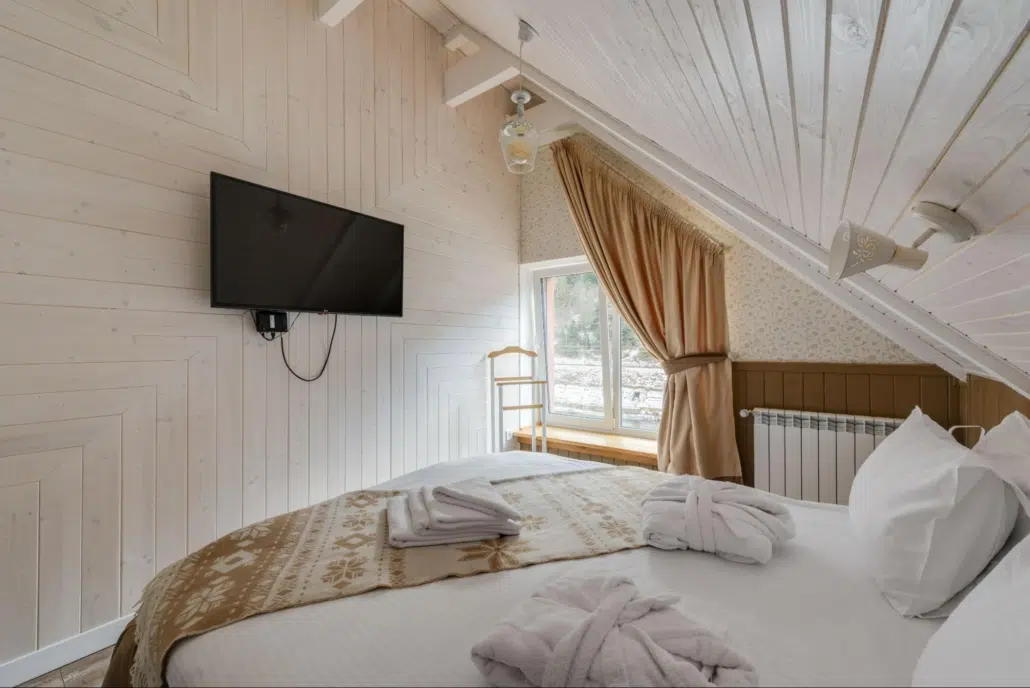Congratulations! You have a property listed on Airbnb. As you customize your listing, you’ll have to determine the nightly rate, say yay or nay to instant booking, and eventually, choose one of several cancellation options if guests cancel their reservation with you. Given today’s cautious state of travel, it’s important to find a policy that allows you, as a host, to align with your guests while avoiding financial loss. Cancellation policies are pivotal not only in safeguarding your income but also in enhancing your property’s visibility in search results.
Guests scrutinize these policies as much as they do the price, influencing their decision to book. A flexible policy can certainly increase your reservations, attracting more spontaneous travelers. However, beware, as this also heightens the risk of unexpected, last-minute cancellations.
In contrast, opting for a stricter policy ensures more predictable revenue, appealing to guests who appreciate the unique allure of your property. Striking the right balance is key; it allows you to protect your earnings while ensuring your listing remains enticing to prospective guests.
Ultimately, finding this balance will enhance your overall hosting experience, aligning with the evolving expectations of travelers and ensuring your property stands out in a competitive market.
Airbnb’s cancellation policy options vary by type of listing (i.e., short-term or long-term), in some cases, the geographical location of your listing, and several other relevant factors. Some cancellation policies are available to a limited number of hosts: by “invitation-only” or when Airbnb is testing new policies.
If you’re feeling lost about which cancellation policy is best for you and your listing, don’t fret. As the leading holistic management platform for short-term rentals, Guesty is here to break down each of the cancellation policy options that Airbnb offers and highlight the pros and cons of each. Our vast knowledge in the hospitality space enables us to streamline the most important factors when considering and choosing the right cancellation policy for you.

Airbnb’s cancellation policies for short-term bookings (28 days or less)
Airbnb has a number of options for cancellation policies for short-term bookings. Obviously, policies that favor guests are riskier for hosts and vice versa. Hosts need to consider the value of a flexible policy that will attract more potential bookings, against the financial impact last-minute cancellations and loss of income will have on their overall budget. Here we will present the options in order from the most flexible to the most strict available policies.
Airbnb’s flexible cancellation policy
The flexible guest cancellation policy is the most relaxed cancellation policy for guests on Airbnb. This gives guests free cancellation up to 24 hours before check-in time, which means they receive a full refund, and you, the host, will not be paid. If a guest cancels after the 24-hour mark, hosts will be paid for each night of the guest’s stay, plus one additional night.
The flexible policy is great for guests, giving them peace of mind that they will not be penalized if their plans change last-minute, which is a huge bonus for booking risk-free. However, their peace of mind equates to your lack thereof because until 24 hours before check-in, you will not know whether or not you’ll be paid, and at that point, it’s likely too late for you to fill the booking. If your property is in high demand and you can afford to gamble with losing a few nights’ pay from last-minute cancellations, this policy could boost your ratings and fill your calendar.
Strategies for Hosts Facing Cancellations Under Flexible Policies
When a guest cancels under a flexible policy and it impacts your income, it’s important to have strategies in place to soften the blow. Here are some actionable steps you can take:
- Offer Last-Minute Deals: Attract new guests by promoting special, time-sensitive discounts. Platforms like Airbnb or Booking.com allow you to adjust pricing swiftly, helping you fill vacant days quickly.
- Adjust Future Pricing: Re-evaluate your pricing strategy. Aim to maintain a balance between being appealing to potential guests and ensuring profitability. Use dynamic pricing tools such as Guesty dynamic pricing tool, Beyond Pricing, or PriceLabs to help automate this process.
- Set Minimum Stay Requirements: Increase your minimum stay duration during peak seasons. This approach can enhance the chances of securing longer, more stable bookings, potentially reducing the risk of frequent cancellations.
- Promote Your Listing More Aggressively: Enhance your online advertising, using platforms like social media or Google Ads, to reach a broader audience. Highlight unique features of your property to stand out.
- Reach Out to Previous Guests: Consider a direct approach by contacting past guests. Offer them special rates for returning, leveraging your established relationship and their familiarity with your property.
- Leverage Local Partnerships: Collaborate with local businesses, such as event planners or travel agencies, to encourage bookings. They may refer clients who need accommodation in your area.
By implementing these strategies, hosts can mitigate the negative financial effects of cancellations and maintain steady bookings.
Airbnb’s moderate cancellation policy
With this cancellation policy, guests can cancel up to 5 days prior to check-in to receive a full refund and like the flexible policy, the host will not be paid. If guests cancel the reservation after the 5-day mark, you’ll be paid for each night of the guest’s stay at your listing, plus one extra night, plus 50% for all unspent nights.
The moderate policy gives guests relative flexibility to change their plans while also giving you, the host, time to accept a replacement booking should they cancel. Out of all the policies, this is the closest to a win-win situation.
Airbnb’s firm cancellation policy
The firm cancellation policy gives you, as the host, more security than the flexible and moderate policies. Guests must cancel at least 30 days before their reservation to receive a full refund, allowing you ample time to find a replacement booking. If guests cancel between 30 and 7 days before their reservation, you will be paid 50% of the booking rate. Should guests cancel the reservation after the 7-day mark, all of the payment stays with you.
If guests cancel within 48 hours of booking their stay, they will receive a full refund, as long as the cancellation occurs 14 days or more before check-in.
The benefit of this policy lies in the 30-7 days prior to the reservation. Not only do you receive 50% payment for the canceled reservation, you also have the opportunity to find another booking, and be paid for that as well. If your property is located in a more remote area or doesn’t see many visitors, it may be worth going with this policy, but keep in mind that its lack of flexibility could deter potential guests.

Airbnb’s strict cancellation policy
One step above the firm policy is the strict cancellation policy: Guests are only able to receive a full refund if the cancellation occurs within 48 hours of booking and at least 14 days before their check-in. Cancellations between 14 and 7 days before check-in will result in a 50% refund (meaning you keep the other 50%), and if they cancel anytime in the last week before their reservation, you will keep 100% of the payment.
The strict policy ensures for you, as the host, maximum protection and minimal risk. However, like the firm policy, guests may be deterred from booking with you due to the lack of flexibility. If you are deciding between a firm and strict cancellation policy, consider your financial circumstances– if you can afford to give guests some room for cancellation, you may see more bookings for your listing.
Airbnb’s non-refundable cancellation policy
The non-refundable cancellation policy is a great way to protect against cancellations while offering guests the value of a discounted booking price. Here’s how it works: when booking with you, guests have the option to select your chosen cancellation policy or to go with the non-refundable option. In return for selecting a non-refundable cancellation, guests receive a discount (which is yours to set, but typically 10% off of your base price).
If guests cancel, you will receive 100% of the payment (minus the cleaning fee if they have not yet checked in). This option is eligible only if the check-out date is within 60 days of booking and the reservation is not booked with a pre-approval or any special offers.
Understanding Airbnb’s Super Strict Cancellation Policies
Airbnb offers two specific cancellation policies known as the Super Strict 30 Days and Super Strict 60 Days policies. These are designed for particular hosts and situations, providing a more stringent framework for cancellations.
Super Strict 30 Days Policy
- Eligibility: This policy is exclusive and not available to all hosts. It is implemented under specific circumstances.
- Cancellation Terms: If a guest cancels 30 days or more before their scheduled check-in, they’ll receive a 50% refund of their booking total.
- Later Cancellations: For cancellations made less than 30 days in advance, guests are responsible for the full cost of the reservation.
Super Strict 60 Days Policy
- Eligibility: Similar to the 30-day policy, this option is also by invitation only and is tailored for select hosts.
- Cancellation Terms: Guests are eligible for a 50% refund if they cancel 60 days or more prior to check-in.
- Later Cancellations: Cancellations occurring within 60 days of check-in will not be refunded, and the guest will be charged the entire amount.
These policies ensure a higher degree of commitment from guests, offering a layer of financial protection for hosts. It’s important for both parties to check the specific cancellation terms before confirming a booking.

Airbnb’s cancellation policies for long-term bookings
The following policies are relevant for bookings of 28 days or more. As you can see, Airbnb offers fewer options for cancellation with longer stays.
Flexible long-term cancellation policy
The flexible long-term cancellation policy works as follows – if guests cancel before 30 days of the check-in, they will receive a full refund. If they cancel anytime after those 30 days, you will receive 100% payment for any nights they stayed at your property, PLUS an additional 30 nights payment. And, if your guest cancels with less than 30 days left in their reservation, you will also be paid in full for those remaining nights.
Additional policies
Before you go, here are a couple of other things to note:
Be aware that Airbnb’s Extenuating Circumstances Policy protects guests from cancellation penalties in the event of natural disasters, war, and other disruptive events policy. If a guest has to cancel due to such circumstances, it’s important to be aware of this policy.
Certain cancellation policies are available only in special circumstances and by invitation-only. You can read about those options to see if any would apply to you and your listing.
How to Change Your Cancellation Policy on Airbnb
As an Airbnb host, updating your cancellation policy is a straightforward process. Follow these steps to make the changes smoothly:
- Sign In to Your Account
Begin by logging into your Airbnb account using your credentials. - Access Your Listings
Once logged in, navigate to the “Listings” section. Here, select the property whose cancellation policy you’d like to update. - Edit Your Listing
Proceed to the listing editor. This can typically be found under the sections labeled “Your space” or similar. - Update Cancellation Policy
Find the section specifically for cancellation policies. Here, you can review your options and select a new policy that better suits your needs. - Save Your Changes
After choosing the desired policy, ensure you save your changes to apply them to future reservations.
Important Note:
Keep in mind, any changes you make will only affect new bookings. Existing reservations will continue to honor the original cancellation policy.
By updating your policy, you can ensure it aligns with your hosting preferences and provides clarity for your guests.
What Practical Tips Are There for Managing Airbnb Cancellations?
Managing Airbnb cancellations effectively requires a strategic approach. Here are some actionable tips to help you minimize losses and maximize potential gains:
1. Monitor Booking Trends
Stay vigilant about how your property’s booking and cancellation patterns evolve. Analyzing these trends can reveal insights, such as increases in last-minute cancellations or periods of high demand. Use this information to choose a cancellation policy that aligns with your property’s needs and optimizes your bookings.
2. Strategically Use Discounts
When demand is low, consider offering non-refundable booking options at a discounted rate. A small price reduction can attract budget-conscious travelers and help maintain a consistent booking flow, ensuring your calendar stays full even during off-peak times.
3. Plan Policy Changes with Care
Keep in mind that any modifications to your Airbnb cancellation policy affect only new reservations. Plan these changes well in advance to avoid unexpected issues for you and your guests. Sudden adjustments might lead to confusion, so avoid making last-minute tweaks unless absolutely necessary.
4. View Cancellations as Opportunities
Cancellations don’t have to be setbacks. They might free up a slot for a longer-staying guest or someone willing to pay a higher rate. By using dynamic pricing tools, you can attract last-minute bookers and turn cancellations into potential advantages.
In summary, keeping tabs on your booking patterns, smartly leveraging discounts, carefully planning policy changes, and viewing cancellations as potential opportunities can significantly enhance your Airbnb management strategy.
Understanding Airbnb’s Host Cancellation Penalties
When you’re hosting on Airbnb, understanding the penalties for cancellations is crucial. Here’s what you can expect if you decide to cancel a booking:
- Financial Penalties:
- Cancel a reservation more than seven days before check-in, and you’ll face a $50 deduction from your next payout.
- Cancelling less than seven days before a guest’s arrival will result in a $100 charge.
- Calendar Impact:
- The days initially reserved for the canceled booking will remain unavailable for other bookings, potentially limiting your earning opportunities.
- Cancellation Fees Exception:
- A silver lining: once you complete ten bookings in a row without any cancellations, you’ll be exempt from these financial penalties.
- Public Review Notice:
- Cancelling a booking means your action will be visible to other users. This notice can’t be removed, but you do have the chance to explain your reasons by responding to the review.
- Last-Minute Cancellations:
- For cancellations within 24 hours of check-in, you need to directly contact Airbnb. These can’t be handled through their online system.
By understanding these policies, hosts can minimize potential deductions and maintain their reputation on the platform. Always aim to cancel in a timely manner to allow guests to adjust their plans smoothly.
Can Airbnb Hosts Offer Custom Cancellation Policies Outside of Standard Options?
While hosts on Airbnb can’t create custom cancellation policies beyond the standard ones offered by the platform, they can set additional terms within their house rules. These terms might include specific conditions for longer reservations or bookings by larger groups, providing some flexibility within the existing framework.
It’s crucial for these additional conditions to be in alignment with Airbnb’s overarching policies. Make sure they’re clearly outlined in your listing description to avoid any confusion. Additionally, you can reinforce these terms by communicating them directly to guests after booking, ensuring full transparency and understanding from the outset.
How Does Airbnb’s Major Disruptive Events Policy Work?
Airbnb’s Major Disruptive Events Policy is designed to address situations that make it impossible to host guests due to major, unforeseen events.
Policy Activation
When a significant disruptive event strikes, Airbnb initiates this policy across all properties in the affected region. This ensures both hosts and guests are protected during emergencies.
Host Cancellations
Hosts are allowed to cancel reservations without facing any penalties if a major disruptive event renders their property uninhabitable beyond the specified recovery period. For instance, if a natural disaster like an earthquake significantly damages the property, hosts can cancel bookings.
What Isn’t Covered?
It’s important to note that this policy doesn’t apply to routine issues such as:
- Flight disruptions or schedule changes
- Personal medical issues
- Obligations like jury duty
- Changes to event dates the guest planned to attend
- Strikes or other transportation-related interruptions
Host Protections
Under this policy, hosts can cancel bookings without incurring fees or punishments. However, it’s crucial to remember that once a booking is canceled, those dates will be blocked on the calendar, preventing new bookings until the property is ready again.
While Airbnb strives to minimize the need for hosts to cancel reservations, this policy acknowledges that sometimes there are unavoidable circumstances. In such cases, this policy is there to ensure fairness and support for both the host and the guest.
When Can Airbnb Guests Request a Refund?
Navigating the intricacies of staying in a rented accommodation can sometimes lead to unforeseen issues. Fortunately, Airbnb has outlined specific conditions under which guests can request a refund. Let’s explore these situations in detail:
Last-minute cancellations or Changes by Hosts
Refund eligibility arises if a host cancels the reservation within a day of the scheduled check-in. Similarly, if the host makes alterations to the booking details without obtaining consent from the guest, such as changing the address or number of nights, the guest may seek a refund. Additionally, failure to provide crucial check-in information, like keys or access codes, can also trigger a refund request.
Misleading or Inaccurate Property Descriptions
Guests can ask for refunds if the rental listing contains false or misleading information. This includes inaccuracies regarding the property’s size, location, number of bedrooms, or available amenities. Furthermore, if critical appliances are malfunctioning and impact the experience, this too can warrant a refund.
Health and Safety Issues
Refunds may be justified if the property raises health and safety concerns. For instance, if the accommodation is found to be inadequately cleaned, hosts undisclosed pets, or presents any hazards, guests can seek a refund.
Steps for Requesting a Refund
To pursue a refund, guests should notify Airbnb within 24 hours of encountering any of the above issues. Providing evidence, such as photographs, videos, or other documentation, is essential to support the claim. It’s equally important for guests to demonstrate the effort to resolve the issue directly with the host before escalating to Airbnb for intervention.
After a claim is made, Airbnb will review the evidence and work towards a suitable solution for the involved parties. This structured process ensures guests have a fair chance to resolve their grievances.
Conclusion
So many policies, so little time. When deciding which policy is right for you, consider your priorities: Is it more important for you to establish a good reputation among guests aGiven today’s cautious state of travel, it’s important to find a policy that allows you, as a host, to align with your guests while avoiding financial loss.
nd attract more bookings by letting guests stay flexible, or do you need to receive guaranteed payments and reliable income? Once you’ve established this, you’ll be able to choose the best cancellation policy for you and your listing.
Beyond personal priorities, it’s crucial to assess several other factors:
- Guest Booking Behavior: Analyze the typical booking patterns in your area. Do guests frequently book last-minute, or do they plan well in advance? Understanding this can help tailor your cancellation policy to meet their expectations.
- Local Events: Consider how local events might impact your bookings. Events can lead to increased demand but also higher cancellation rates. Adjust your policy to account for these fluctuations.
- Financial Risk Tolerance: Determine your comfort level with financial risks. Flexible policies might attract more bookings but also come with a higher likelihood of cancellations. On the other hand, stricter policies could deter some bookings but provide more stability in your income.
- Competitor Policies: Look at what other hosts in your area are doing. This can give you insights into market norms and help you position your listing competitively.
- Historical Data: Review your past booking and cancellation trends to make data-driven decisions. This analysis can reveal patterns that inform your policy choice.
- Rebooking Potential: Consider whether you can easily rebook last-minute cancellations without reducing your rates significantly. If so, a flexible policy might work in your favor by boosting your search rankings.
By evaluating these factors alongside your personal goals, you can make a well-informed decision that aligns with both your business strategy and market demands.
When making your decision, it’s also important to consider the current trends in travel booking. The aftermath of Covid, coupled with the impending recession, has caused travelers to be more cautious in committing to their plans. Travelers are booking closer to their travel dates and prefer flexible booking options to allow for cancellations. If you find that you are not getting booked with a more rigid policy, you might want to try a more flexible option to see if that makes a positive impact on your reservation calendar.




